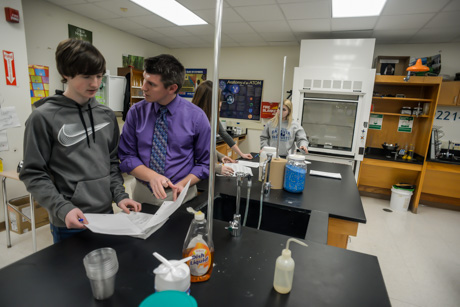
Mixing different kinds of chemicals and compounds together isn't the only kind of experiment going on in David Porter's classroom at Oakfield-Alabama High School.
Porter is also introducing a concept that is only about a decade old called "flipped learning." Basically, students watch videos of typical lecture material at home or otherwise away from the classroom and then classroom time is used for worksheets, labs or individual instruction.
Proponents say it's a style of teaching more suitable to students raised in the Digital Age. Porter says it empowers kids to more easily master the subject.
"With flipped learning, more lecture and note-taking takes place at home and typical homework now takes place in class," Porter said. "The whole idea behind it is that it’s almost brainless work to do note-taking. I fill in the blanks. I just copy what’s on the board. It’s not high-level thinking skills being used. Then students go home and get stuck on question number four and then they give up. By flipping that order, students can do the lower level thinking skills at home. They just watch a video, fill in their notes and there’s no question. Then when they come into the class, do the work and they have a question on question number four, I’m right there; they have a teacher who can jump in and say, ‘ok, now we’re stuck, here’s how we get past there.’ "
Porter started trying flipped learning in the middle of the semester last year so this year's chemistry class is the first one getting the instruction through the whole course.
Students say they like it.
"It helps because if you don’t understand something, you just watch that part over until, ‘oh, yeah, I get it,’ ” said Jonathan Mateos.
Ryan Douglas said he thinks it's more interesting than a whole class just watching a teacher lecture. He thinks he's learning the material faster.
So far this year, students have gotten through 28 labs in 25 weeks. Last year's class did 35 labs in 40 weeks.
"So I'm almost to where I was last year and I’ve still got another 15 weeks to utilize for that hands-on working material," Porter said.
Porter is a graduate of Batavia High School. He got his degree in Chemistry Education from Roberts Wesleyan College and is working on his master's at SUNY Brockport. He's writing his thesis on flipped learning.
He said as he works on his paper, he's continually studying all the literature on the subject and learning new things himself about the process. He brings new ideas into his own instructional approach, he said.
His interest in teaching was sparked by his mother, a teacher herself. He said he was always more of a math and science guy.
"I was never very strong in history and English, but I loved numbers and doing something to get numbers," Porter said. "It was always math or science, but I loved science because it's more hands-on. You get to do more than just put letters and numbers on a page."
To excel at chemistry in a flipped classroom, a student need not be strong in science. He or she just needs to follow through on assignments. Everybody works at their own pace, but they are expected to master the material before moving on.
“Chemistry is a tough subject, where if you don’t understand day one you’re never going to get day two," Porter said." If you don’t get day two, you’re never going to get day three and that just sets up a whole year of hardship that’s not needed. So I’d rather take the time, dive in and really understand day one before we get to day two."
That's the approach Jonathan said he likes.
"If you go home and don't understand something, you can watch the video over and over again until you have a complete understanding," Jonathan said. "Then, when you come into class, it's really nice to have the teacher there while you're doing your homework."
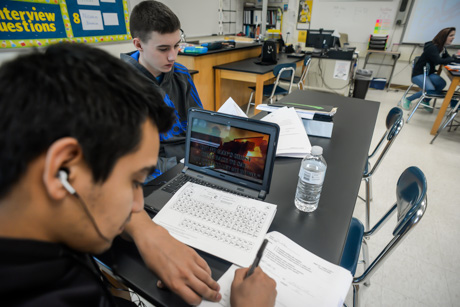
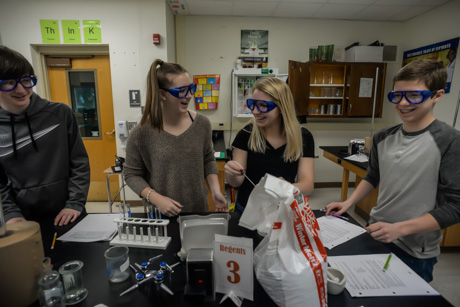
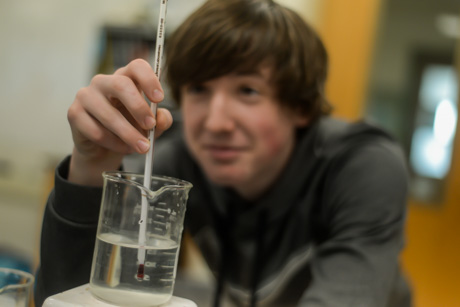
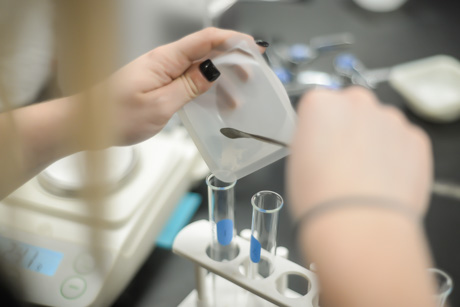
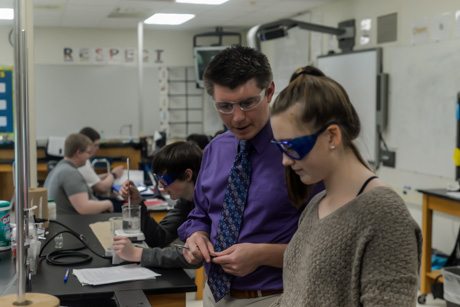

O-A was lucky to get David.
O-A was lucky to get David.
I love the concept if the
I love the concept if the kids like it. I just wonder if kids will feel overwhelmed feeling that now their home time feels like it has to be shared school time.